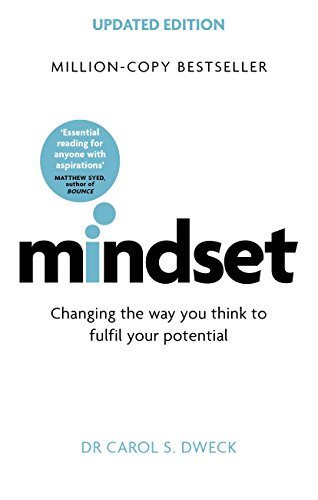
The Growth Mindset: Unlocking Your Potential
Introduction
In her groundbreaking book, Carol S. Dweck introduces the concept of the growth mindset, a belief that abilities and intelligence can be developed with effort, learning, and persistence. This transformative perspective can lead to a more fulfilling and successful life.
Understanding the Growth Mindset
The growth mindset contrasts sharply with the fixed mindset, where people believe their basic qualities, like their intelligence or talent, are simply fixed traits. Dweck's research shows that those with a growth mindset achieve more than those with a more static view of their abilities.
Key Differences Between Fixed and Growth Mindsets
| Fixed Mindset | Growth Mindset |
|---|---|
| Believes intelligence is static | Believes intelligence can be developed |
| Avoids challenges | Embraces challenges |
| Gives up easily | Persists in the face of setbacks |
| Sees effort as fruitless | Sees effort as a path to mastery |
| Ignores useful feedback | Learns from criticism |
| Feels threatened by the success of others | Finds lessons and inspiration in the success of others |
The Impact of Growth Mindset
The benefits of adopting a growth mindset extend beyond personal development. It has profound implications in various aspects of life, including education, career, and relationships.
In Education
Students who believe they can grow their intelligence are more likely to challenge themselves, persevere through difficulties, and ultimately achieve higher levels of success.
In Career
Professionals with a growth mindset are more likely to seek out new opportunities, embrace challenges, and continuously improve their skills, leading to greater career advancement.
In Relationships
Individuals with a growth mindset are more open to feedback, willing to work through conflicts, and more resilient in the face of relationship challenges.
Developing a Growth Mindset
Developing a growth mindset requires conscious effort and practice. Here are some steps to cultivate this mindset:
1. Embrace Challenges
View challenges as opportunities to grow rather than obstacles to avoid.
2. Learn from Criticism
See feedback as a tool for improvement, not as a personal attack.
3. Celebrate Effort
Focus on the process of learning and growing, rather than just the outcome.
4. Persist in the Face of Setbacks
Recognize that failure is a part of learning and an opportunity to develop resilience.
5. Find Inspiration in Others
Use the success of others as motivation and learn from their experiences.
Conclusion
Adopting a growth mindset can transform your life, enabling you to achieve your full potential. By believing that your abilities can be developed through dedication and hard work, you open yourself up to a world of possibilities.
For more insightful content, visit our website: Read Review Talk and check out our blog: Read Review Talk Blog.



